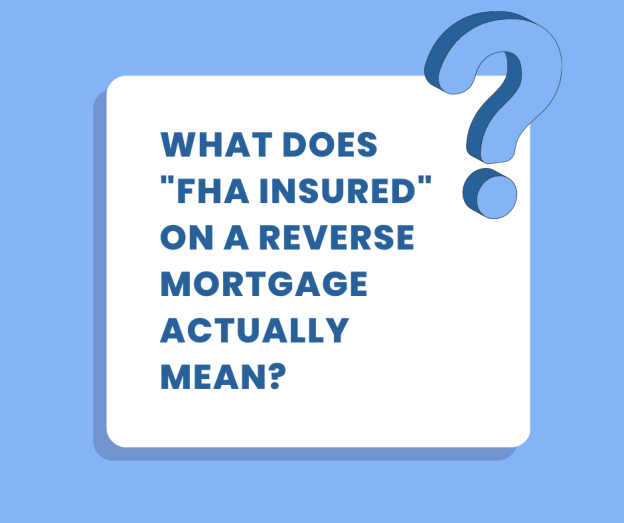You may have heard “federally insured” or “FHA insured” when talking about a reverse mortgage loan, but what does that actually mean? It is actually an integral part of the reverse mortgage and extremely beneficial to the borrowers.
A federally-insured reverse mortgage assures that, as the borrower, you will receive certain loan payments as agreed upon by the terms of your loan. Also, you or your heirs will never be forced to repay more than your home is worth to pay off the loan, regardless of the loan’s balance.
This is important because it ensures two things –
- The reverse mortgage insurance guarantees that these loan proceeds will be disbursed to the borrower as agreed upon under the loan terms. The loan proceeds are guaranteed even if the lender goes out of business. Similarly, with a line of credit, the lender cannot cancel or freeze the line of credit when this insurance is in place.
- The insurance protects all parties in the transaction, including the borrower, the lender, the borrower’s heirs, and the investors who buy the securities backed by the loans. The insurance makes the program possible for borrowers.
“While these [reverse mortgages] got a bad rap in the late 90s and early 2000s, they have changed what needed to change. A reverse mortgage can be an excellent option for qualified borrowers who need to access their home equity and may not have the income or life expectancy to qualify for a traditional first or second mortgage or even a HELOC,” says Eddie Martini, strategic financing and real estate investment advisor at Real Estate Bees, and wealth coach at Martini Legacy.
Like many Americans, you may be concerned about the economy and struggling to manage issues like high inflation and interest rates. At the same time, you may also have enjoyed home price appreciation over the past few years. In Chattanooga, home values have gone up 6.6% over the past year. In Nashville, home values have increased an average of 12.9% over the past year. This home price appreciation has given homeowners significant amounts of home equity to tap into. More home equity, as well as an insured reverse mortgage loan, may be the retirement security you are looking for. And we at Mortgage South want to help you see if a reverse mortgage can help you achieve retirement security. Mortgage South is local and you deal with a professional that has been doing these since their inception. Give Nathan a call, you will not be disappointed even if you find this is not a perfect fit, he can point you in a direction that might help. If you are in Chattanooga or the surrounding area, please call (423) 624-3878. If you are in the Greater Nashville area, please call (615) 657-5878.



